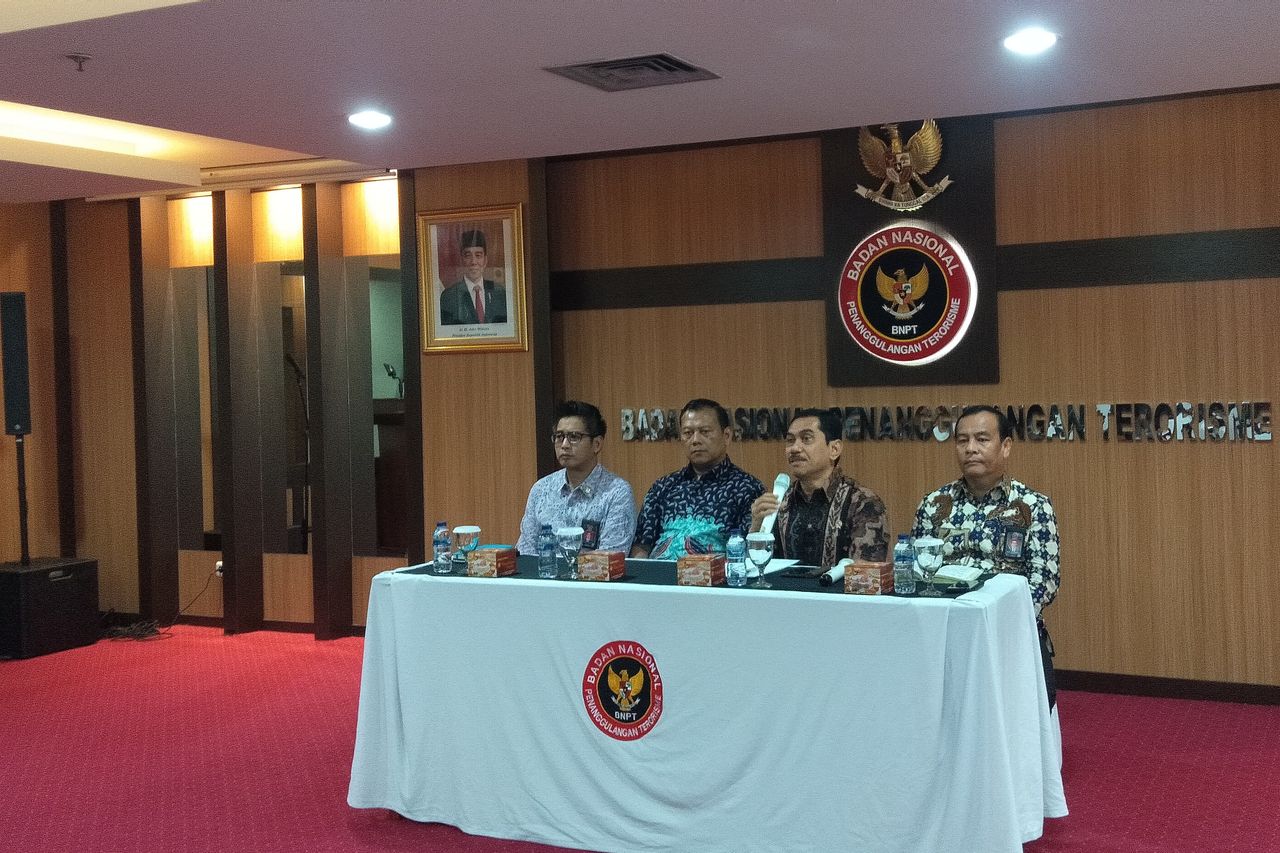Former ISIS Indonesian Citizens In The Middle East Are The Majority Of Women And Children

JAKARTA - The National Counterterrorism Agency (BNPT) is verifying the identities of around 600 Indonesian citizens (WNI) who were former ISIS followers. Therefore, until now there is no exact number that can be confirmed.
The head of the BNPT, Suhardi Alius, received information from the intelligence team of a number of Middle Eastern countries and the ICRC International Red Cross, that the majority of the former members of the terrorist organization are women and children.
"Of the approximately 600 people who claim to be Indonesian citizens, we have received information that the majority are women and children," said Suhardi at the BNPT Building, Jalan Medan Merdeka Selatan, Central Jakarta, Friday, February 7.
The children who were there were deemed to need special attention. This is because Indonesia has Law Number 3 of 2014 concerning Child Protection.
Moreover, international law provides that children who take part in recruitment in conflict areas can be categorized as victims. They are considered not old enough to make decisions regarding their ideology.
"There is an obligation for countries internationally, the authorities must provide protection to these children. These are the principles of international law that exist if we relate to cases in Syria," Suhardi explained.
However, it is possible that the children there have been given understanding and training to join the organization which is considered radical. In fact, some children are considered trained and entered the troops (fighters).
Therefore, Suhardi admitted that he needed to coordinate further with the international intelligence team to find out how far the children moved.
"That's why we are really working together. It's not easy, what we face is ideology. Imagine the difficulty, the level of difficulty in reducing, eliminating that traumatic traumatic condition," he said.
The option to return the Indonesian citizen is also uncertain. This is because BNPT together with the Kemenkopolhukam are drafting a plan that contains two options related to the former ISIS citizen, namely being sent home or not, as well as the impact of the two options.
Previously reported, government authorities such as Kemenkopolhukam together with the National Police, BNPT, State Intelligence Agency (BIN), Ministry of Religion, Ministry of Social Affairs conducted a study on the plan to repatriate Indonesian former combatants in the Middle East.
It's just that several considerations are still being debated by related agencies, including the matter of efforts to develop and deradicalise Indonesian citizens who are ex-ISIS, which are not easy matters considering they have been exposed to radical ideologies.
Meanwhile, the police are still digging up information on 600 Indonesian citizens (WNI) who are planned to be repatriated to Indonesia after the collapse of the Islamic State of Iraq and Syria (ISIS) by America.
Temporary information, they are in three camps, namely Al Roj, Al Hol, and Ainisa. The camp is under 3 authority powers, namely SDF (syrian democratic forces), the Syrian government, and the government of Kurdistan.
President Joko Widodo rejected hundreds of Indonesian citizens (WNI) of the former Islamic State of Iraq and Syria (ISIS) who reportedly wanted to return to their homeland. Moreover, they had gone viral on social media, they had burned their passports.
However, Jokowi said, to decide on the plan to return the former ISIS member, of course, must be discussed in a limited meeting with the ranks of ministers in the Advanced Indonesia Cabinet.
"If I did, I would say no. But of course, this will still be discussed in a limited meeting," Jokowi said via Twitter quoted on Thursday, February 6.
Regarding Indonesian citizens who are ex-ISIS organizations who are reportedly about to return to Indonesia, journalists ask me: what about those who have burned their passports. If I did, I would say: no. But of course, this will still be discussed in a limited meeting. pic.twitter.com/2To9HrNlQY
- Joko Widodo (@jokowi) February 6, 2020
